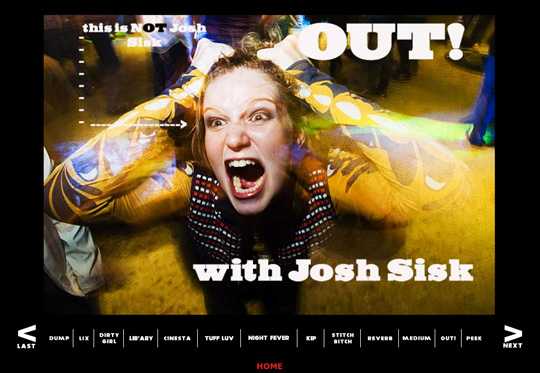Phew. I feel much better now.
On December 14th, after 2 long years, I quit my job as the Director of Photography at Men’s Journal. Before that I was the Photography Editor at Outside Magazine for 5 1/2 years and before that I lived in Jackson Hole, Wyoming freelancing as a photo editor for two national startup magazines (outdoor related and now defunct), managed/assisted several local ski photographers and worked with a couple national ski film companies.
I left Men’s Journal because I wanted a change of lifestyle. I like to ski, climb, bike and run as much as I enjoy working with photographers and NYC is not really the place for both so I did my time and… I’m out.
At Outside Magazine I worked with an incredibly talented Creative Director, Hannah McCaughey, who pushed me to hire brilliant photographers and challenged me to refine my taste to the point where I felt it necessary to go to New York City and join the community of photo professionals if I wanted my career to continue to grow. So, when Men’s Journal came calling the offer was too good to turn down and I was excited to meet all the photographers and agents I’d worked with over the years, visit galleries and go to events.
Well, it didn’t work out the way I expected, mostly because the work hours were long and the commute to Connecticut where I moved with my family a pain in the ass, plus I wanted to spend the weekends with my kids playing and I was trying to find outdoor activities to do as well. And, so, I never really got to be a part of that NYC photo community. My job started to get a bit stale and I spent lots of time online reading blogs and enjoying the community that I never engaged with in New York. J.M. Colberg, Andrew Hetherington, John Loomis, Alec Soth and others (Andrew is the only one who lives in New York so maybe they all have the same problem I did). I decided to start a blog. I had no objective other than to engage with everyone and contribute something back and… heeeeyah, holy fucking shit, it’s been nothing short of amazing. All those gallery shows and events and drinks with photographers that I blew off have all been made up by the interactions I’ve had with all of you. Thanks.
I left New York and I’m now temporarily in Tucson, AZ and then next summer I will move permanently to Durango, CO where I plan to pursue whatever comes my way. I’m still a photo editor and I love to work with photographers but I want to spend time outdoors and with my family so you know, whatever I work on has to come after that.
I’m tired of trying to change the media industry from the inside (I have great stories from my efforts that I will share with you in the coming months) and I really want to do something to lead this industry in the right direction. I think the blog is a good start but I have ideas for software and websites that I believe will greatly benefit professional photographers in the future so for the time being I’m going to devote all my energy to that.
Maybe now that you know who I am some of you out in the wings watching will feel like you can comment and we can continue this community and see where it goes next. Last month I had 40,000 unique visitors, so I know there’s a bunch of people just reading and watching. Also, just because I’m no longer anonymous doesn’t mean you can’t continue to be. I needed it to protect me just as some of you will when you have something to say that you don’t want to bite you in the ass later.
Anyway, thanks everyone, it’s been a trip and I hope we can keep on truckin.
Rob Haggart AKA A Photo Editor
